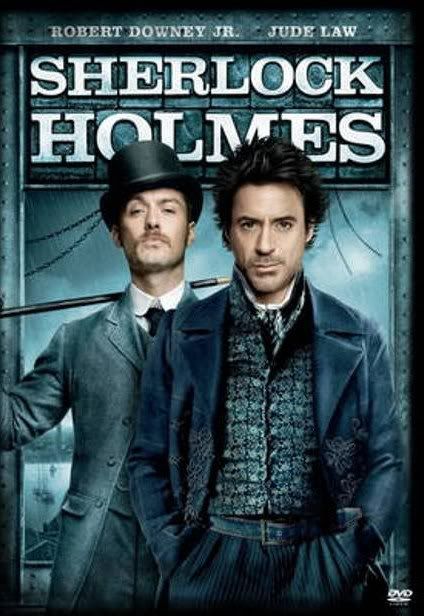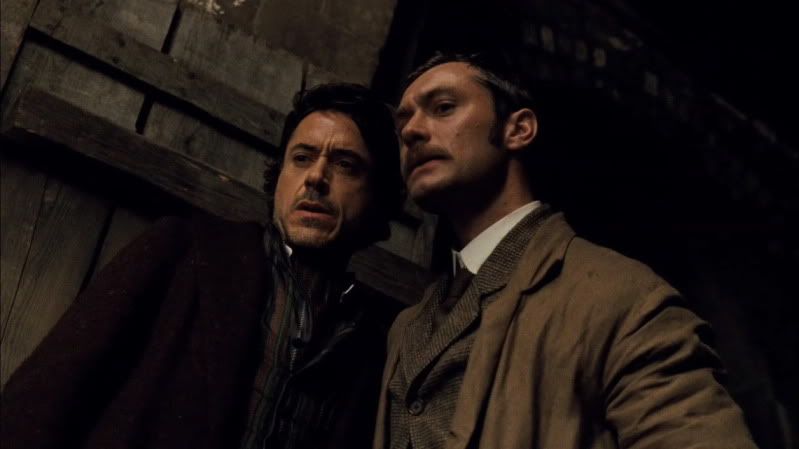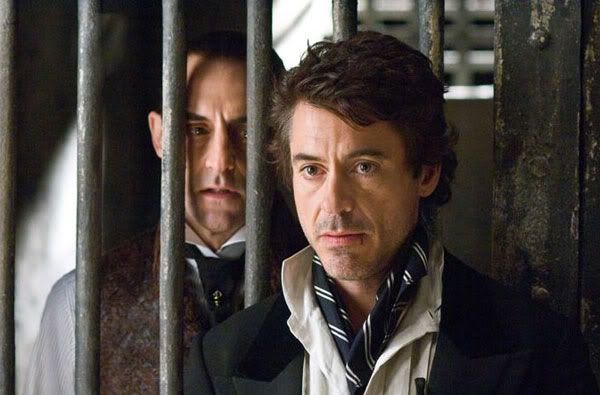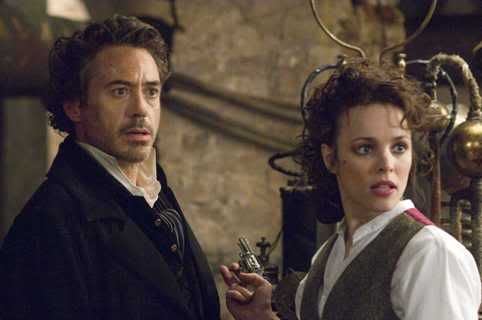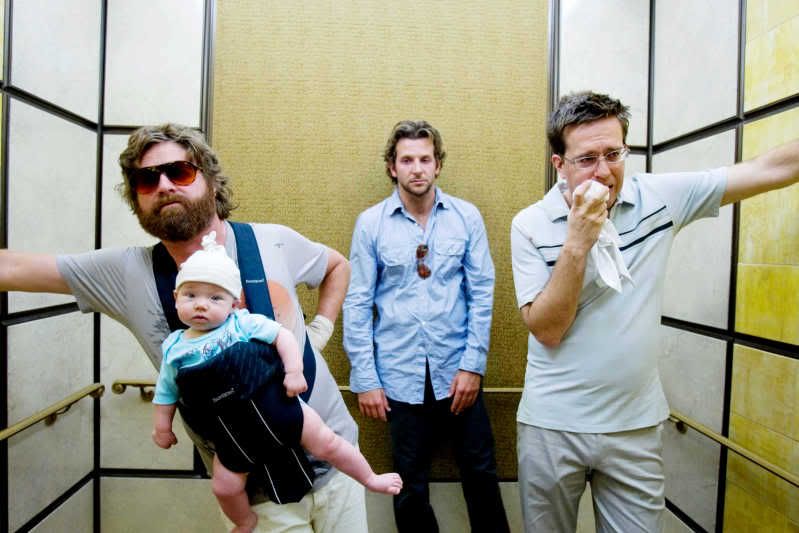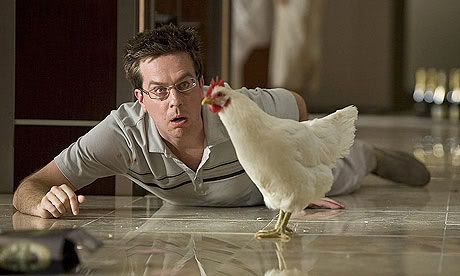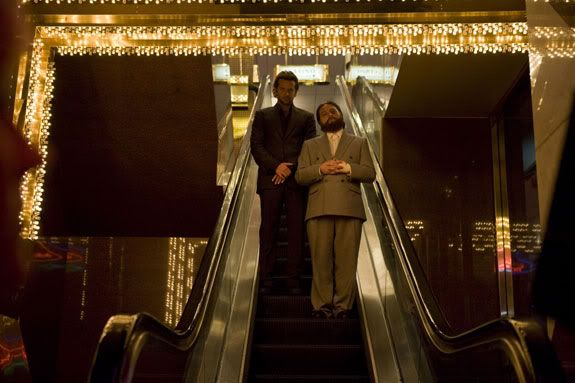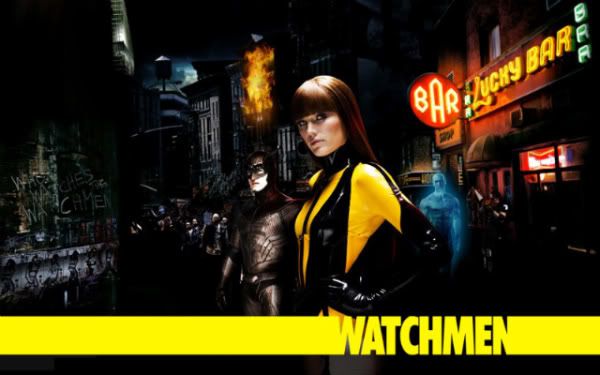I’ve been a fan of writer/director Christopher Nolan’s work since his shatteringly brilliant Memento. He’s breathed new life into Batman with two equally stunning films, and his somewhat underrated adaptation of the novel The Prestige is every bit as haunting and cerebral as his other work. This year, he brings us Inception. Not only is it probably the best film you’ll see all summer, if not all year, it’s also the best film of Nolan’s career to date.
Yep. Better than The Dark Knight, better than Memento.
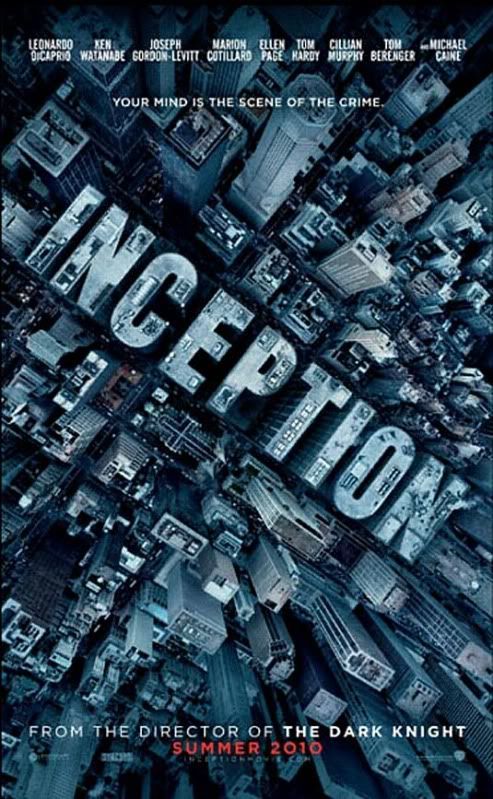
The tag line for the film is “Your mind is the scene of the crime.” The concept is that technology originally developed to allow military recruits to train against each other in a consequence-free dreamscape is now being used by professional thieves to steal information from others’ minds in their dreams. This requires the participation of an architect to build the world of the dream, a chemist to balance the drugs required to keep the mark and the team under, a forger who creates cyphers to assist or distract the mark, a point man to keep the mental defenses of the mark’s subconscious at bay, and an extractor to get their hands on the information. Everybody involved needs to remained focused and calm, which is a problem for the extractor, Cobb, whose own subconscious is breaking into the dream worlds his team have built. He needs to go home, and to do so, industrialist Saito offers him one last job – not to steal an idea, but to implant one, a process considered to be impossible and known as inception.
If he hadn’t become a filmmaker, Christopher Nolan may have become a renowned illusionist, the sort of stage practitioner that leaves the crowd breathless and wondering how exactly he pulled off his trick. What’s particularly amazing about Nolan’s work is, not only are we aware that he’s manipulating events like a master puppeteer, he goes out of his way to show us the strings before he leads down a labyrinth of ideas and environments, daring us to keep up. We caught glimpses of this in Memento and The Prestige, but Inception takes this to a whole new level. The rules of the dream, the logic behind the flow of time within the subconscious and the ways in which the mind moves to protect itself are explained in great detail, Nolan shows us how these constructs work, and then takes us on a journey that has us questioning what rules, if any, were broken, and how the story arrives at its conclusion, to say nothing of what that conclusion actually is.
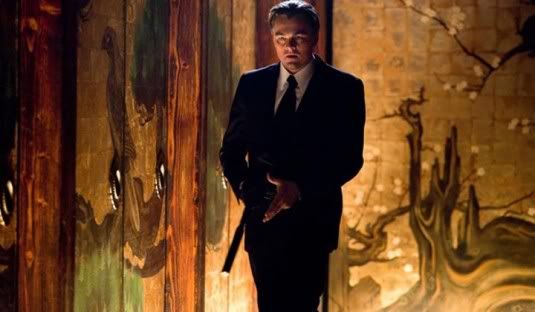
Inception would not work anywhere near as well as it does if it didn’t have such an excellent, top-caliber cast. Leonardo DiCaprio as Cobb the extractor continues to shine in the sort of edgy, mature, hard-bitten roles that have caused me to embrace him as a fantastic actor. He gives Cobb a great deal of haunted depth, and has the burden of carrying the bulk of the film’s emotional and philosophical weight. He does so with grace and not a hint of exertion, drawing us deeper and deeper into the realm of Cobb’s mind.
But that doesn’t mean the rest of the cast is just phoning it in. Everybody’s in top form here. Joseph Gordon-Levitt, who apparently can totally rock a suit no matter what film he’s in, seems dedicated to keeping Cobb grounded to keep his job as point man from being to difficult, while Tom Hardy (who thankfully has put that Shinzon debacle far behind him) encourages everyone around him to use their imaginations while he forges the tools they need to pull off their heist. Ken Watanabe shows us many dimensions as Saito, a man who is both the cause for Cobb’s predicament on this last job and the apparent key to his freedom. Cillian Murphy as the mark is more that just a dupe, but to say more would be giving away plot information. And Ellen Page, who’s quickly become one of my favorite young actresses, conveys Ariadne as both the eager young architect recruited by Cobb and the voice of reason inside his head. If Saito has the key to Cobb’s freedom, Ariadne has the key to preventing the interference caused by Mal, played with sublime menace by Marion Cotillard.
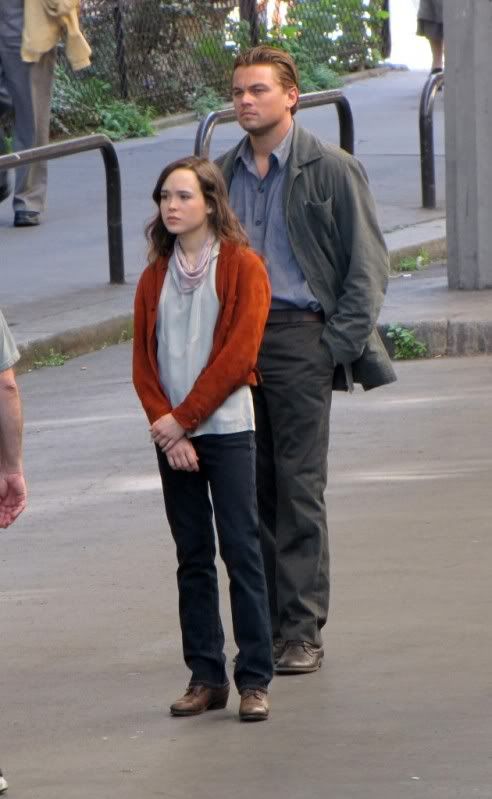
Yes, her name is ‘Ariadne’, as in ‘mistress of the labyrinth’. There’s a lot of symbolism in Inception. Since we’re dealing almost entirely in the realm of dreams for the running time of this film, and dreams are populated by people, places and things that hold special meaning for the dreamer, quite a few things that happen between the first shot and the last seem to invite us to interpret them. Christopher Nolan is a skilled storyteller, so the film never verges into completely obscurantist territory like 2001 does, and even as symbols come and go, the plot remains taut and the characters clearly motivated. As I said, Nolan’s confident enough in his skill to show us the strings. That doesn’t mean that those very strings we’re shown can’t be used to mess with our heads.
I admit I had a squeal of delight when Ariadne asks the question, “What happens when you start messing with the physics?” It’s something I never quite got about The Matrix. If you were in complete control of the world around you, why not start messing with things the way she does? The way the real world interacts with the dream world leads to some very interesting situations, from a quick laugh at the beginning of the heist to one of the most inventive and breathtaking fight sequences I have seen in a very, very long time. Not only does Joseph Gorden-Levitt rock that suit, he does what was probably a rather complicated stunt without seeming to break a sweat. The guy’s a pro.

This is a film I will be watching many more times for many years to come. It’s Christopher Nolan’s best film to date, and it will be damn hard to top. I’d love to go see it again right now, in theaters, as the big screen perfectly captures the scope, power and danger of the worlds built within our dreams. However, it’ll also be great on DVD, so that the film can be paused, rewound and analysed with friends over drinks to try and figure out what exactly it all means. I for one can’t wait for those evenings.
A lot’s been said about the ending of Inception. I’ve tried very hard not to give away any spoilers, but let me voice my opinion to the best of my ability. Christopher Nolan is not a bad storyteller. He gives us all the clues we need to figure out exactly what Inception is and means, to him and to us. He doesn’t take the Kubrick & Clark route, of trying to raise many more questions than he answers. He wants us to understand. He encourages us to figure it out. And he provides everything we need to solve the puzzle. The challenge is… can we?
I’d like to think I can. I just need to see it again. A few times. It’s an amazing film, one of the best I’ve seen in a long time, and if ever there was an excuse for me to sell a major organ to afford a high-def television and a PlayStation 3 in anticipation of a film coming out on Blu-ray, Inception would be it. This one’s going to be in my head and in my heart for a long, long time.
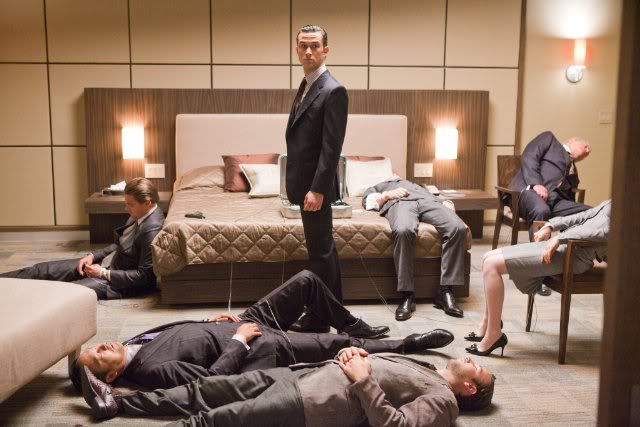
Stuff I Liked: Beautifully shot, written and executed. The various dreams are distinctive and gorgeous. The touches of humor are brilliantly timed and delivered. It’s subtle, cerebral and packed with action.
Stuff I Didn’t Like: I am going to miss that kidney I have to sell.
Stuff I Loved: Very strong characters portrayed by skilled, damn good-looking actors. A totally immersive storytelling experience I won’t soon forget. It made me think. It still does.
Bottom Line: You owe it to yourself to see Inception in the cinema. Find where it’s playing and go see it. It might be the best way you’ll spend money on entertainment all year, and it’ll stay with you long after the credits roll. Go. See. This. Film.


